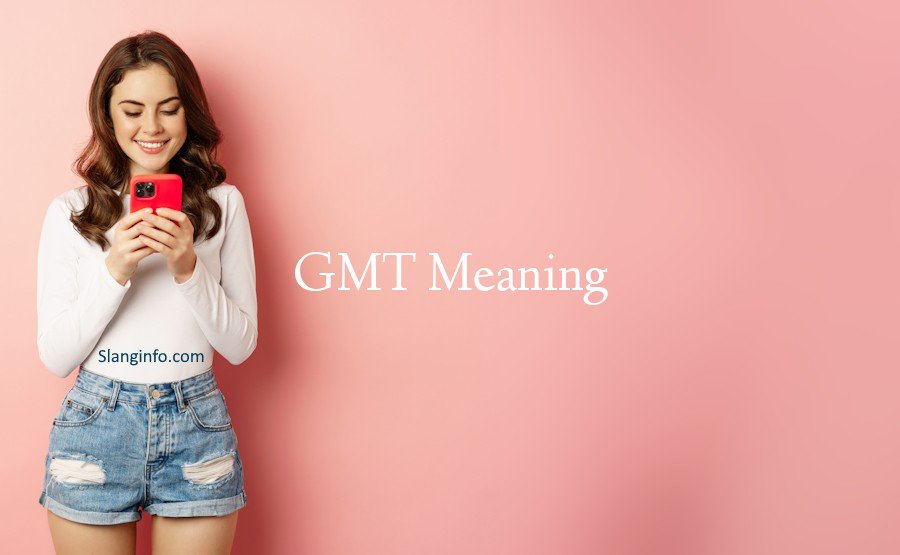GMT means for Got Me Tight.
In the fast-paced world of online communication, acronyms and abbreviations often emerge to encapsulate complex emotions succinctly. GMT, an abbreviation for “Got Me Tight,” is one such term that has gained popularity over time. Let’s dive deep into what GMT means, explore examples of its usage, and decipher its evolution in the realms of text messaging and social media.
What Does GMT Mean?
GMT is a shorthand way of expressing frustration or tension in a conversation. When someone uses GMT, they are conveying that the dialogue has left them feeling agitated or tightly wound. Typically employed in text messages, Slack, Snapchat, or other online communication tools, GMT serves as a digital sigh, indicating heightened emotions.
Also read: CAUGHT IN 4K Meaning
Abbreviation Details
| Abbreviation | Meaning |
|---|---|
| GMT | Got Me Tight |
Emotion Associated
- Frustration / Tense
Safe for Work and Children
GMT is generally considered safe for both work and children, but its informal nature suggests exercising discretion in professional or educational settings.
Snapshot of Social Media
Delving into its meaning on popular platforms:
| Snapchat Meaning | Instagram Meaning |
|---|---|
| Got Me Tight | Got Me Tight |
Also read: Wordhippo 5 Letter Words
Examples and Other Meanings
Let’s explore a couple of examples to grasp the nuances of GMT:
- “This whole conversation GMT!”
- Emotion: Annoyed
- Intention: Expressing frustration with the current flow of the conversation.
- “School GMT right now.”
- Emotion: Frustrated
- Intention: Signifying stress and concern about the workload related to school.
Popularity Over Time
The inception of GMT into our digital lexicon dates back to 2017. Since then, it has become a staple in text messaging and social media, reflecting the evolving dynamics of online communication.
Also read: GIGA CHAD
GMT’s Primary Community
Text messaging and social media platforms have embraced GMT as a common expression, making it a go-to term for conveying tension or frustration.
10 Questions and Answers About GMT
- Q: Is GMT appropriate for professional settings?
- A: While generally safe, its informal nature suggests caution in formal environments.
- Q: When did GMT first gain traction?
- A: GMT started trending in 2017.
- Q: Can children safely use GMT?
- A: Yes, GMT is considered safe for children due to its relatively mild nature.
- Q: Are there alternative meanings for GMT?
- A: No, GMT primarily signifies frustration or tension.
- Q: Where is GMT most commonly used?
- A: GMT finds its home in text messages, Snapchat, and other online communication tools.
- Q: How has GMT evolved in social media?
- A: GMT has seamlessly integrated into platforms like Snapchat and Instagram, becoming a widely recognized expression.
- Q: Can GMT be considered a form of slang?
- A: Yes, GMT falls into the category of informal language.
- Q: Does GMT have regional variations in meaning?
- A: No, GMT’s meaning remains consistent across regions.
- Q: Are there nuances to consider when using GMT?
- A: Yes, GMT should be used to convey frustration or tension carefully.
- Q: What emotions does GMT encapsulate?
- A: GMT primarily conveys frustration and tension.
GMT’s Impact on Digital Communication
In the landscape of online expression, GMT has established itself as a reliable tool for conveying nuanced emotions efficiently. Whether you find yourself annoyed with a conversation or stressed about school, GMT provides a succinct outlet for expressing tension.
Also read: AWH Meaning
In conclusion, GMT is more than an acronym; it’s a testament to the ever-evolving nature of language in the digital age. Embrace it wisely, and let your frustrations be known with a simple three-letter expression.








1 thought on “GMT Meaning”